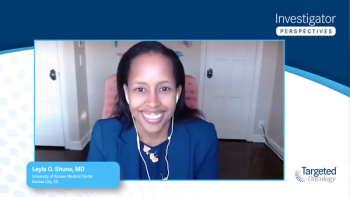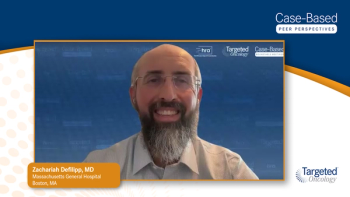
Case 2: Efficacy and Safety of Fedratinib in High Risk MF
Experts in myelofibrosis present safety and efficacy data from a clinical trial of fedratinib in patients with high risk myelofibrosis.
Episodes in this series

Jamile M. Shammo, MD: Let’s move on to the fedratinib phase 3 trial, JAKARTA. This is the randomized placebo-controlled trial for patients who have intermediate- and high-risk MF [myelofibrosis], splenomegaly, and a platelet count of at least 50,000 per mm3. Patients were randomized to either placebo or fedratinib. The primary end point was spleen response: 35% reduction at week 24. The majority of those patients, as you’ve seen with the ruxolitinib, had spleen response of some sort. But those who had less than 35% were 36% of the patients. It was a little higher at the 500-mg dosing. In the placebo group, most of the patients had increase in that percentage. In fact, there was an abstract that Dr Claire Harrison presented. For those who had a platelet count above 100,000 per mm3, the responses seemed to be a little better. For those who had a platelet count between 50 and 100 per mm3, 36% is reasonable as well. The heme and nonheme toxicities are what you see here. Everybody who has to start this medicine needs to be aware of the heme toxicity. These are grades 3 and 4. The nonheme toxicity would include some GI [gastrointestinal] toxicity as well, but grades 3 and 4 seem to be very small and tolerable with supportive care. Because of the grade, the cases of Wernicke encephalopathy that had been reported earned it the black box warning. All the patients who have to be started on fedratinib have to be evaluated as such and have their thiamine level checked prior to and periodically throughout treatment.
Ruben Mesa, MD: Jamile, that was a wonderful walk-through of the complex data for myelofibrosis.
This transcript has been edited for clarity.






















